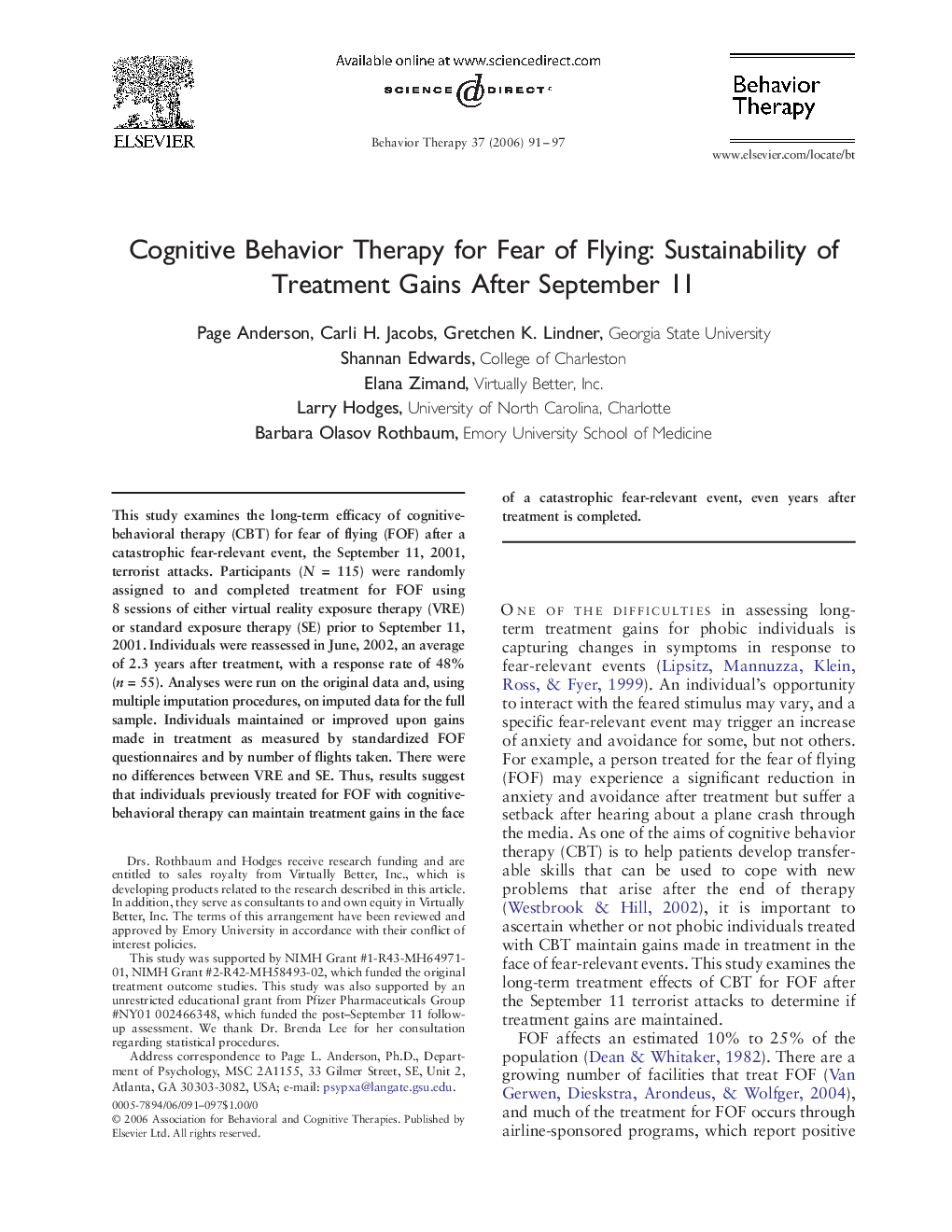| Article ID | Journal | Published Year | Pages | File Type |
|---|---|---|---|---|
| 901626 | Behavior Therapy | 2006 | 7 Pages |
This study examines the long-term efficacy of cognitive-behavioral therapy (CBT) for fear of flying (FOF) after a catastrophic fear-relevant event, the September 11, 2001, terrorist attacks. Participants (N = 115) were randomly assigned to and completed treatment for FOF using 8 sessions of either virtual reality exposure therapy (VRE) or standard exposure therapy (SE) prior to September 11, 2001. Individuals were reassessed in June, 2002, an average of 2.3 years after treatment, with a response rate of 48% (n = 55). Analyses were run on the original data and, using multiple imputation procedures, on imputed data for the full sample. Individuals maintained or improved upon gains made in treatment as measured by standardized FOF questionnaires and by number of flights taken. There were no differences between VRE and SE. Thus, results suggest that individuals previously treated for FOF with cognitive-behavioral therapy can maintain treatment gains in the face of a catastrophic fear-relevant event, even years after treatment is completed.
